The Store Berlin is Taking Retail Slow
The Store Berlin's creative director, Alex Eagle, explains why fashion retail needs to slow down and offer a lifestyle as opposed to a trend.

In the second instalment from our 'What's In Store' series, The Store Berlin's creative director, Alex Eagle, explains why fashion retail needs to slow down and offer a lifestyle as opposed to a trend.
The world of fashion retail is split. In one corner is fast fashion, represented by the likes of Zara and H&M, and in the other, slow fashion, brought to life in bespoke boutiques and sections of high-end department stores. The two worlds couldn’t be more different. One is trend-driven, frantically made to keep apace with collections, often mass produced, and of lower quality. The other, often carrying a hefty price tag, shies away from seasonal trends, and creates clothes that are made to be sustainable and last.
Slow fashion is the reaction to fast fashion’s obsession with never-ending catwalk cycles and celebrity-led trends. It is undoubtedly more expensive but it offers a lifestyle (think: Celine) as opposed to a fad (think: Urban Outfitters). Its bespoke and understated nature has become, in many ways, a status symbol in a world full of dispensable goods and overt labelling.
Positioning itself firmly within the slow fashion stronghold is The Store, a multi-use retail space occupying the lower level of private members’ club, Soho House Berlin. More than just a fashion outlet, The Store is a space to relax, dine and pamper yourself. It is, as it’s creative director, Alex Eagle, says, “a store of ideas rather than a shop.”
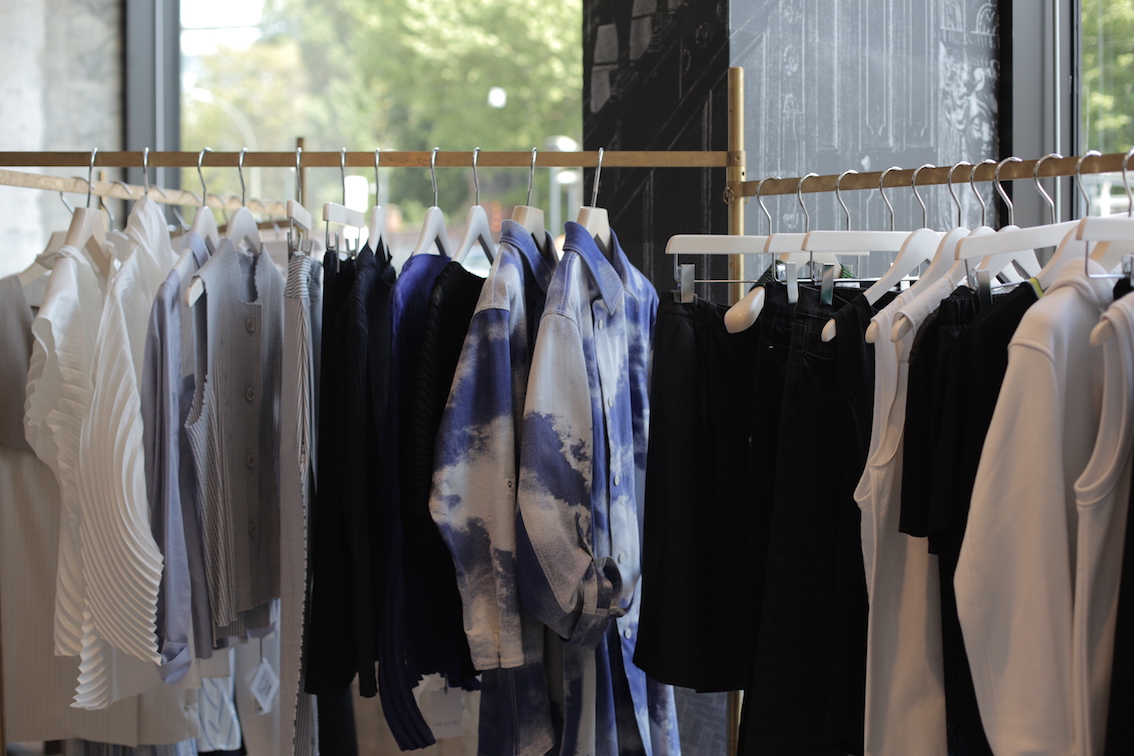
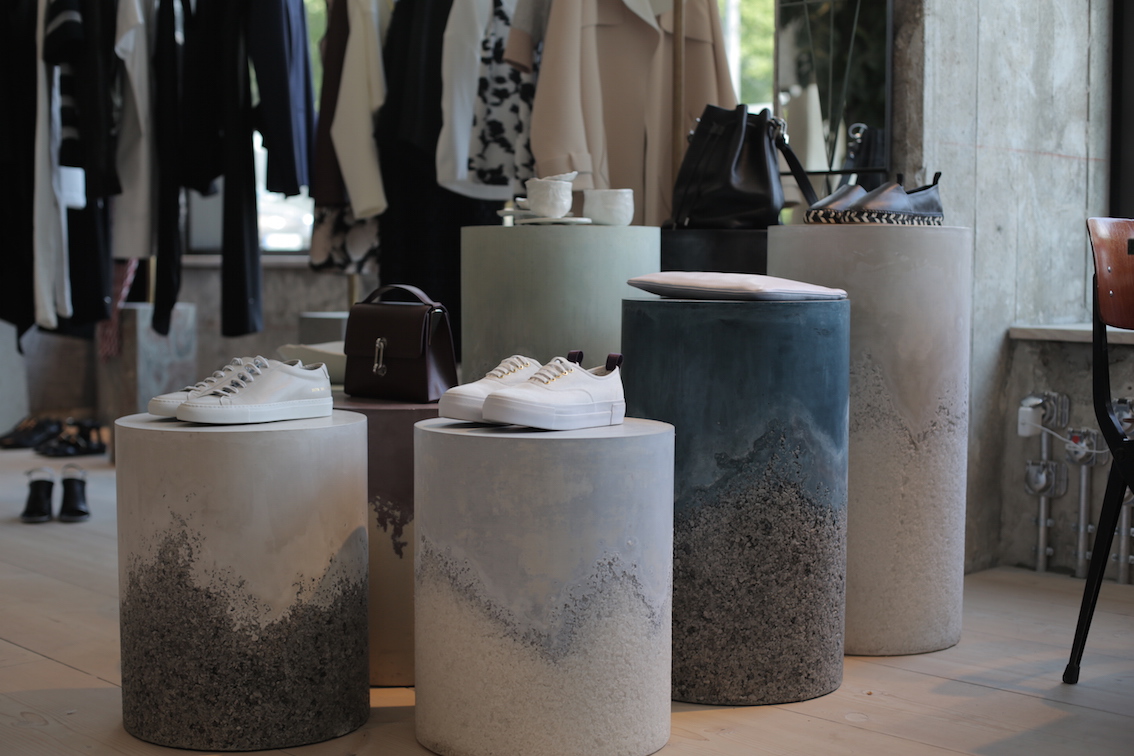
In fact, retail occupies only one fifth of The Store’s actual space. Under the one roof, visitors can grab something to eat at The Store Kitchen or Pizza East, they can pamper themselves at the Barber & Palour salon, or they can sit down and relax on one of the numerous designer couches. The concept is to create a holistic space that is not just a shop but a creative environment where people can hang out and spend time.
To accommodate so much choice you need a big space, and The Store is big. Occupying around 2,800 square metres, the space is vast and industrial, with giant concrete pillars surrounded by countless amounts of greenery taken from London’s Kew Gardens. Light and bright, it’s as much a space for reflection as consumption.
If you do want to buy, everything within the shop, from the furniture to the books, is for sale. Regardless of what you decide upon, the products are built to last. Labels like The Row, Jil Sander, Axel Furniture, and Eagle’s eponymous clothing brand, are testament to that.
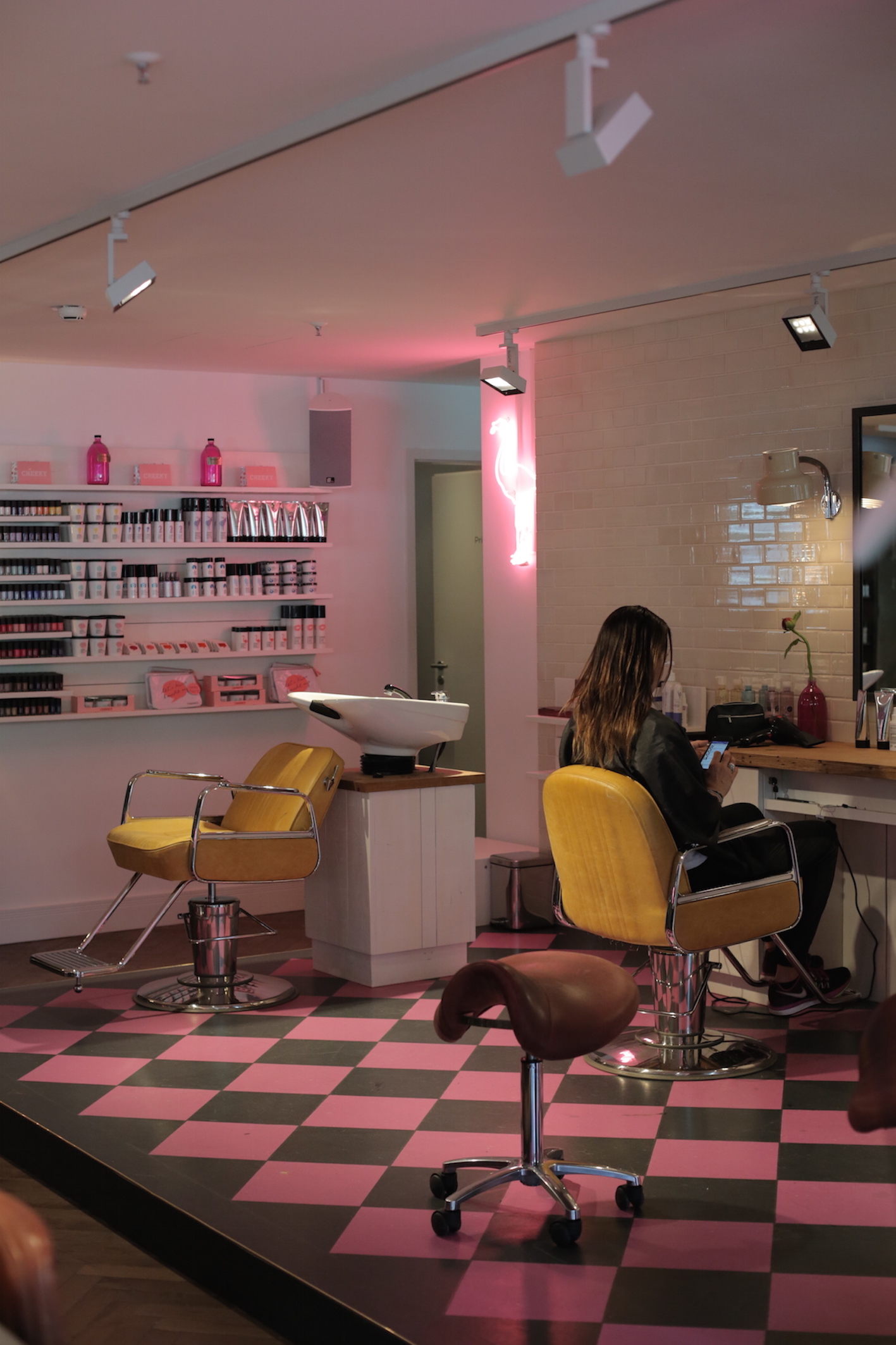
"The main concept behind the store is that it wasn’t trend led, it was known for following what is good, what made you feel good, what made you feel like you hadn’t been cheated, what was slow cooked in a sense, that there was no rush or panic"
For Eagle the space represents the opposite of fast fashion. With so many collections being churned out each year, the value of clothing has arguably been lost. For The Store, Eagle didn’t want things to be seasonal, she didn’t want the panic, and the fervour that came with always wanting the new.
“The main concept behind the store is that it wasn’t trend led, it was known for following what is good, what made you feel good, what made you feel like you hadn’t been cheated, what was slow cooked in a sense, that there was no rush or panic.”
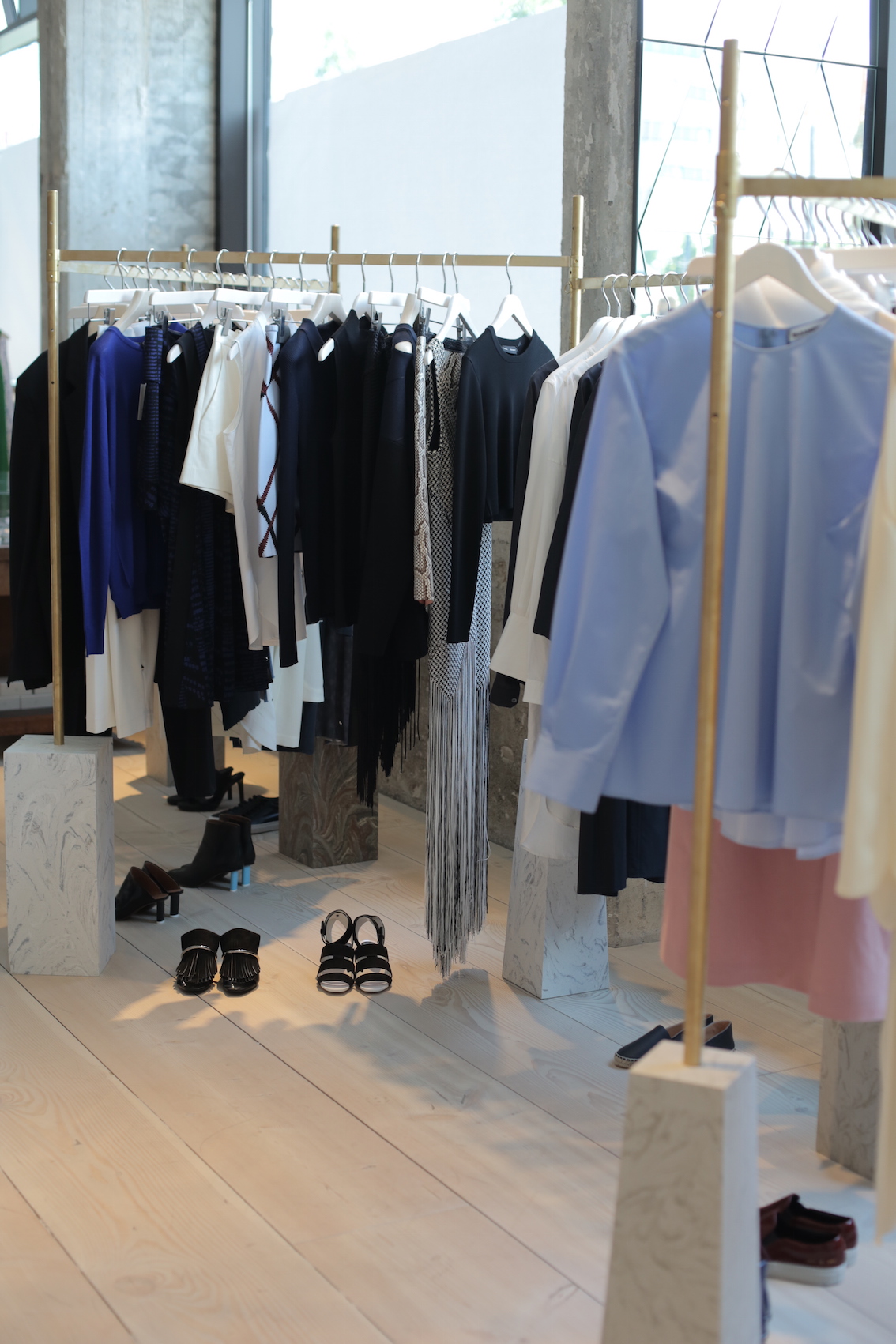
In our fast-paced world, slow has in many ways become a lifestyle trend. Slow food, slow fashion, slow TV. To compete with the affordability of fast fashion and the ease of online retail, Eagle has created a space that’s thoughtful and considered, a space that, through its curation, enables its visitors to relax and appreciate the worth of what is on offer.
“The space is an edit of books, records, fashion, beauty, and so on. It all plays into a way of helping people live their lives,” explains Eagle. “I think that’s what people want from a brick and mortar store, from luxury. With everything being just a click away on the computer people then want an experience and an edit.”
"I think it’s important to have things that you believe in and if you believe in them, others will too”
In essence, Eagle sees the future of retail as being not just retail, but being a lifestyle experience, being a place where people can come and hang out and spend time without this panic to buy something there and then. The future of retail depends on a shop owner’s authenticity and vision, creating spaces with meaning and experience as opposed to spaces made for a quick profit.
“The trend in ethical, less waste, longevity is important and hopefully is becoming a trend with other stores around the world,” concludes Eagle. “People feel a bit sickened by the waste a lot of the industry produces, it’s putting retailers under so much pressure to constantly be selling, constantly be full, constantly be new. Really I think it’s important to have things that you believe in and if you believe in them, others will too.”
Hungry for more? Check out the first film in our 'What's In Store' series with Hostem's James Brown.
Interview by Carmen De Baets Video and photography by Diogo Lopes and Pia-Nicole Sarkar
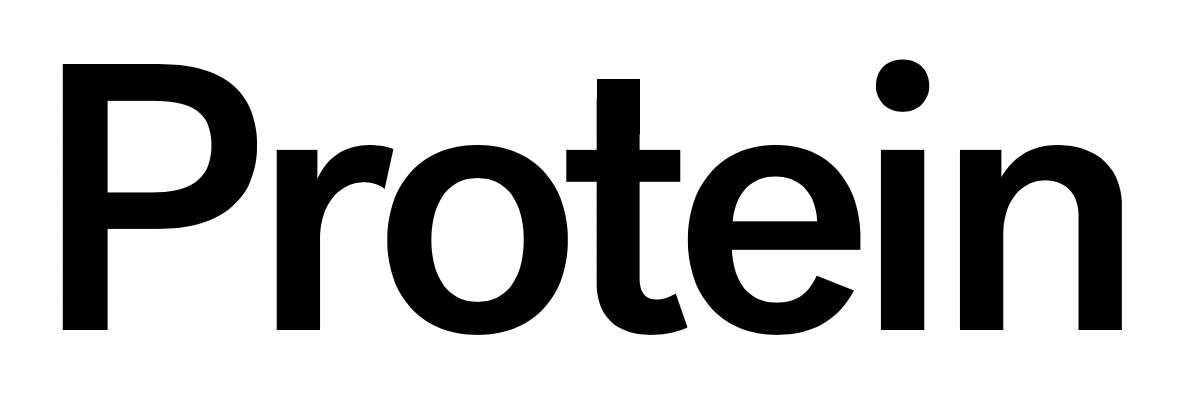

Discussion